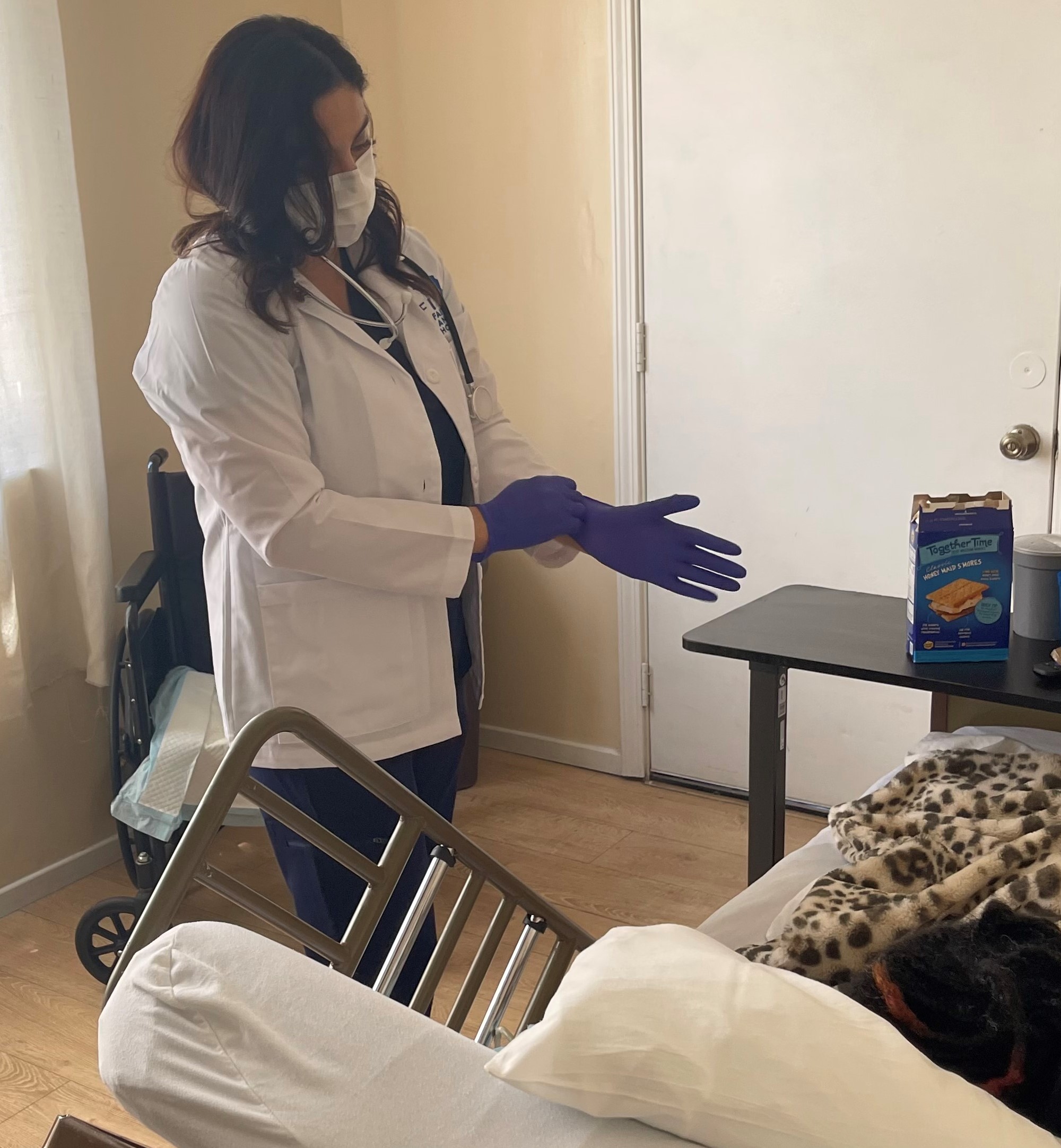Home Palliative > Palliative Care Team
A palliative care team is a group of interdisciplinary professionals who work together to provide comprehensive and holistic support to patients with serious illnesses and their families. The primary goal of the team is to improve the quality of life for both the patient and their loved ones by addressing physical, emotional, social, and spiritual needs. Each member of the team brings unique expertise and skills to ensure that all aspects of a patient’s care are addressed. This page will introduce you to the various professionals who may be part of a palliative care team and the roles they play in providing support.
-
Palliative Care Physician: A palliative care physician is a medical doctor who specializes in providing symptom management and relief for patients with serious illnesses. They collaborate with the patient’s primary care physician and other specialists to develop a personalized care plan that addresses the patient’s unique needs and goals. They also help with decision-making and coordinating care among different healthcare providers.
-
Palliative Care Nurse: Palliative care nurses play a crucial role in managing the patient’s symptoms, monitoring their condition, and administering medications as needed. They are skilled in providing compassionate care and emotional support to both patients and their families. They also help educate patients and their caregivers on how to manage symptoms at home and provide guidance on navigating the healthcare system.
-
Social Worker: A social worker on the palliative care team assists patients and their families in addressing practical concerns and emotional challenges related to the illness. They may help with coordinating resources and services, such as home care, transportation, or financial assistance. They also provide counseling and support to help patients and families cope with the emotional impact of the illness.
-
Chaplain or Spiritual Counselor: Spiritual care is an essential component of palliative care, as it addresses the emotional and existential questions that often arise during a serious illness. A chaplain or spiritual counselor provides non-denominational spiritual support, helping patients and their families explore their beliefs and values, find meaning in their experiences, and cope with feelings of grief or loss.
-
Pharmacist: A pharmacist on the palliative care team is responsible for managing medications, ensuring that patients receive the appropriate medications for their symptoms, and monitoring for potential drug interactions or side effects. They also provide education and guidance on medication management and help patients and their caregivers understand the importance of adhering to their prescribed medication regimen.
-
Physical Therapist: Physical therapists can be an important part of the palliative care team, helping patients maintain or improve their mobility and function. They provide personalized exercise programs and strategies to help patients manage pain, fatigue, and other physical symptoms, ultimately improving their overall quality of life.
-
Occupational Therapist: Occupational therapists focus on helping patients maintain their independence and participate in meaningful activities, despite their illness. They provide strategies and adaptive equipment to help patients manage daily tasks and engage in activities that are important to them.
-
Dietitian or Nutritionist: A dietitian or nutritionist on the palliative care team helps patients address their nutritional needs and manage symptoms related to eating and digestion. They provide personalized dietary recommendations and strategies to maintain adequate nutrition and hydration, which can help improve overall well-being and symptom management.
-
Other Specialists: Depending on the patient’s specific needs, additional specialists may be involved in the palliative care team. This can include psychologists, psychiatrists, speech therapists, or other healthcare professionals who can contribute their expertise to the patient’s care plan.
In summary, a palliative care team is a group of interdisciplinary professionals who work together to provide comprehensive support to patients with serious illnesses and their families. By addressing physical, emotional, social, and spiritual needs, the palliative care team plays a crucial role in improving the quality of life for both patients and their loved ones throughout the course of the illness.
Our services
Learn more about our services
Physician
Hospice physicians make the ultimate decision – they evaluate the patient …
Nursing
The nurse plays a crucial role in the patient’s care plan starting from …
Case Management
Hospice case managers do just that, manage the case. They are looking at …
Social Work
While the Faith in Angels Hospice nurses and physicians care for the patients…
Home Health Aide
Although the home health aides follow the plan of care developed by the …
Chaplain
Faith in Angels Hospice is proud to provide chaplain services for our …
Volunteers
Although volunteers are not a part of the hospice interdisciplinary care …
Emotional and Spiritual Care
It’s natural to think of doctors and nurses providing medical treatment …

A sincere thank you to all of you for your care and assistance for our mom, Lucille Ledoux, while she was on hospice. You helped make her more comfortable and we know she enjoyed your visits and all arrangements on her behalf. We are grateful for all your care!

